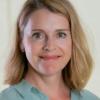
The POPJUS Program continues and builds upon research activities previously undertaken in the IIASA World Population and Risk and Resilience programs. Insights into current and future population sizes, structures, and distributions are fundamental to understanding human impacts on ecosystems and simultaneously, the impact of environmental changes on human wellbeing differentiated by sub-populations.
The program’s research agenda embraces the key priority in the IIASA strategic plan by identifying sustainable development challenges and exploring people-centric systems solutions for sustainable, resilient, just and equitable societies. The program focuses on strengthening the human-centered and population-based approach, taking into consideration equity and the just distribution of opportunities, outcomes, and processes. In doing so, the program builds on existing strengths and expertise in population and human capital modeling as well as expertise in understanding, managing, and equitably governing systemic and existential risks associated with global change. The program will continue to invest in advancing its methods, approaches, and data to deliver results that can be incorporated into system analytical models, inclusive policy processes, and ultimately into equitable and effective policy pathways and transformations.
POPJUS Research Groups

Equity and Justice (EQU)
The EQU Group focuses on the human dimension of selected globally relevant policy challenges, with the aim of delineating and advancing their analysis, management, and governance with special attention paid to the design and application of equity and justice frameworks, both within the group and across IIASA.

Migration and Sustainable Development (MIG)
MIG focuses on applying advanced data collection and estimation methods to quantify and better understand the trends, patterns, drivers, and consequences of different types of migration considering its interactions with the social, economic, and environmental dimensions of sustainable development.

Multidimensional Demographic Modeling (MDM)
Through its research, the MDM Group aims to advance demographic modeling methods to assess and forecast population dynamics with a focus on demographic and spatial heterogeneity under different socioeconomic scenarios at the global, national, and sub-national level.
Wittgenstein Centre
POPJUS is one of the three pillars of The Wittgenstein Centre for Demography and Global Human Capital, a collaboration among the Austrian Academy of Sciences (ÖAW), the International Institute for Applied Systems Analysis (IIASA) and the University of Vienna.
Read POPNET Newsletter WIC Report of Activities 2018–2022
Models, tools, datasets
Projects
Staff
News

23 July 2024
Introducing the IIASA Justice Framework

10 July 2024
Latest European Demographic Data Sheet highlights lasting impact of war and migration

13 June 2024
Finance Innovation Festival shines a spotlight on Nature-based Solutions and Insurance
Events
Potsdam Institute for Climate Impact Research (PIK) & Online
German IIASA Networking Event: "Systems analysis for a sustainable and peaceful future"
Focus

17 July 2024
Biodiversity lessons from nature
IIASA researchers Silvia Artuso and Juliette Martin reflect on a recent workshop presented at the Institute as part of the IIASA School Engagement Initiative, during which they introduced students to systems analysis and took them on an adventure to explore the amazing biodiversity of Laxenburg park.
27 June 2024
TRUST

Publications
Vashold, L. & Crespo Cuaresma, J. (2024). A unified modelling framework for projecting sectoral greenhouse gas emissions. Communications Earth & Environment 5 (1) e139. 10.1038/s43247-024-01288-9. Martin, J. , Kanade, R., Bhadbhade, N., Joy, K.J., Thomas, B.K., Willaarts, B. , & Hanger-Kopp, S. (2024). Review of the food, water and biodiversity nexus in India. Environmental Science & Policy 159 e103826. 10.1016/j.envsci.2024.103826. Palazzo, A. , Kahil, T. , Willaarts, B. , Burek, P. , van Dijk, M., Tang, T. , Magnuszewski, P., Havlík, P. , Langan, S. , & Wada, Y. (2024). Assessing sustainable development pathways for water, food, and energy security in a transboundary river basin. Environmental Development e101030. 10.1016/j.envdev.2024.101030. (In Press) Moersberger, H., Valdez, J., Martin, J.G.C. , Junker, J., Georgieva, I. , Bauer, S., Beja, P., Breeze, T.D., Fernandez, M., Fernández, N., Brotons, L., Jandt, U., Bruelheide, H., Kissling, W.D., Langer, C., Liquete, C., Lumbierres, M., Solheim, A.L., Maes, J., Morán‐Ordóñez, A., Moreira, F., Pe'er, G., Santana, J., Shamoun‐Baranes, J., Smets, B., Capinha, C., McCallum, I. , Pereira, H.M., & Bonn, A. (2024). Biodiversity monitoring in Europe: User and policy needs. Conservation Letters e13038. 10.1111/conl.13038. Carr, R., Kotz, M., Pichler, P.-P., Weisz, H., Belmin, C., & Wenz, L. (2024). Climate change to exacerbate the burden of water collection on women’s welfare globally. Nature Climate Change 14 700-706. 10.1038/s41558-024-02037-8.














